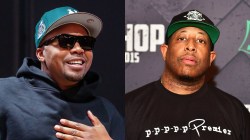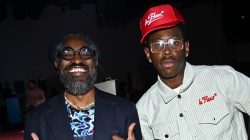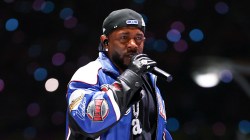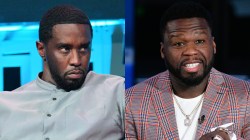On the third episode of The Idol, The Weeknd’s character Tedros asks Jocelyn’s creative director, Xander, what he thinks about the titular singer’s newest single “I’m A Freak.” He calls it “fine”, and “middle of the road” before referring to Jocelyn as a “manufactured bad girl.” If this reinvention sounds familiar, it’s because Rihanna succeeded at changing her overall aesthetic 15 years ago with Good Girl Gone Bad. Much darker in tone than her previous efforts, Rihanna understood what made her music and appeal so enticing to others. The Weeknd, on the other hand, makes it clear he doesn’t understand how the switch from good girl to bad works. Instead, he doubles down on hyper-sexuality and glitzy production to convince listeners Jocelyn is a changed woman.
The show, which has been called one of the worst programs to ever grace television screens, thinks it’s deep and thought-provoking, which makes the music suffer even more. Despite some good ideas, The Idol soundtrack can’t escape the sea of mediocrity that surrounds The Weeknd on many of the tracks that feature Lily-Rose Depp. Her adequate vocals can’t bolster the subpar lyricism that pollutes otherwise decent tracks like “One Of The Girls” and “Fill The Void.” Though richly produced, little could save Depp from having to sing “You call me, havin’ good times with a bad boy / Seems I’ve got a choice to make.” The Weeknd, who lends his voice on the back half of the track, sounds like he picked up a leftover from his My Dear Melancholy era.
Some might believe The Weeknd is playing himself in The Idol and the songs do seem to be coming from his character Tedros, rather than his Weeknd alter ego, or even himself. Problem is, Tedros sucks as a character, making his songs sound like AI memes of the Weeknd, rather than from the biggest pop star in the world. “Family,” which features Suzanna Son — who plays the aspiring singer Chloe — boasts a solid concept about hating the family you’re born into and an even stronger chorus, but The Weeknd piggybacks off it with fairly innocuous vocals regurgitating a part in the series where he begs his followers to view him as their found family.
The Idol desperately wants its viewers to see the show as a dark rabbit hole of how the industry and the world exploit women. As sinister as the plot can be, its goofiness hinders it from reaching its potential, which shows on the soundtrack. Mike Dean’s presence on the soundtrack is limited, but his emulation of Angelo Badalamenti on “Devil’s Paradise” proves it can’t even properly convey the horrors of the exploitation half as well as Twin Peaks could thirty years prior.
Though the show descends further into madness across its five episodes, some of the tracks feel oddly disconnected. But that’s actually to the music’s benefit – the further away the songs stray from the maligned show, the better the music gets. “Double Fantasy” could have landed on After Hours without a hitch. “Jealous Guy” showcases The Weeknd’s ability to cover classics and “Take Me Back” offers a sincere portrait of himself. None of these tracks weave into the plot, but in a vacuum, they could very well sit in a comfortable compilation of the Toronto singer’s catalogue.
While the Weeknd and Lily-Rose Depp dominate a bulk of this project, some artists get solo cuts, another highlight on a deeply flawed mess of an album. Moses Sumney floats on the sardonic “Get It B4,” while Troye Sivan does George Harrison justice on his cover of “My Sweet Lord.” Suzanna Son also handles the entirety of the final track “Crocodile Tears,” but her over-reliance on accentuating her vocals makes her sound like she’s trying supremely hard to be noticed by record labels. Granted, that’s the point of her character on the show, but frankly, this album’s insistence on splitting the difference between good music, and bad music that progresses a plot, makes it an uneven, maddening experience.
The Idol’s soundtrack narrowly avoids disaster thanks to a few good guests and captivating solo performances from its lead, but just like the show, it severely mishandles its women. Lily-Rose Depp has a decent enough voice but instead, she’s relegated to generic pop girl, while Suzanna Son doubles down on the Halsey effect to make her voice stand out. Perhaps overhauling the show and considering making good music that also fit with the plot would have made for a better experience. But, the album makes one critical mistake that the show surprisingly didn’t: it’s forgettable.

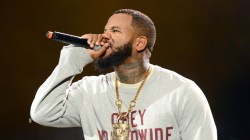
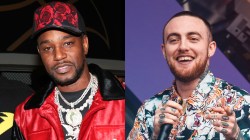
![Method Man Admits He Didn't Like Drake's "Wu-Tang Forever": "I [Wasn't] Getting On That"](https://hiphopdx.com/wp-content/uploads/2025/12/method-man-drake-wu-tang-forever-remix.jpg?w=250)
